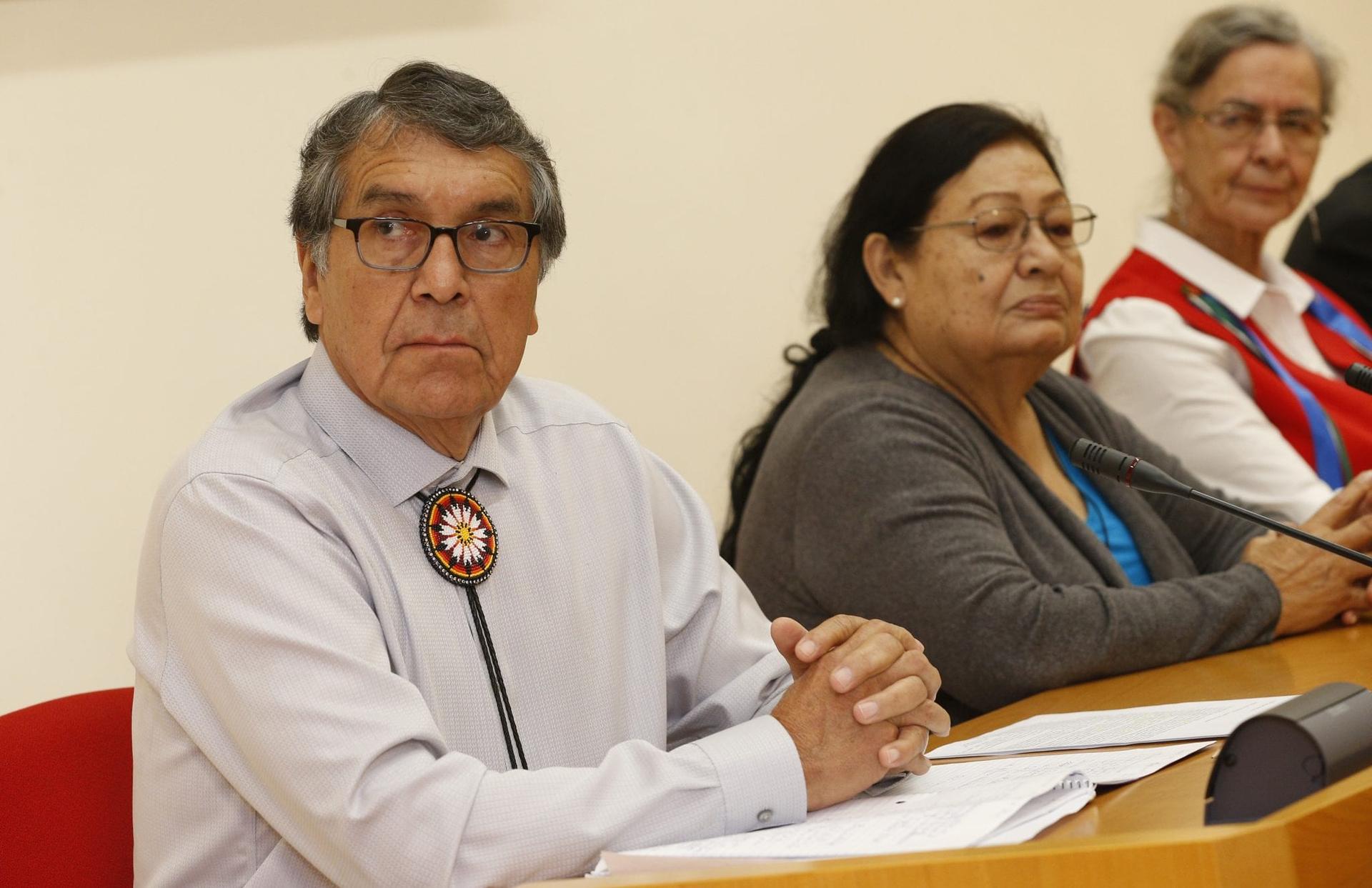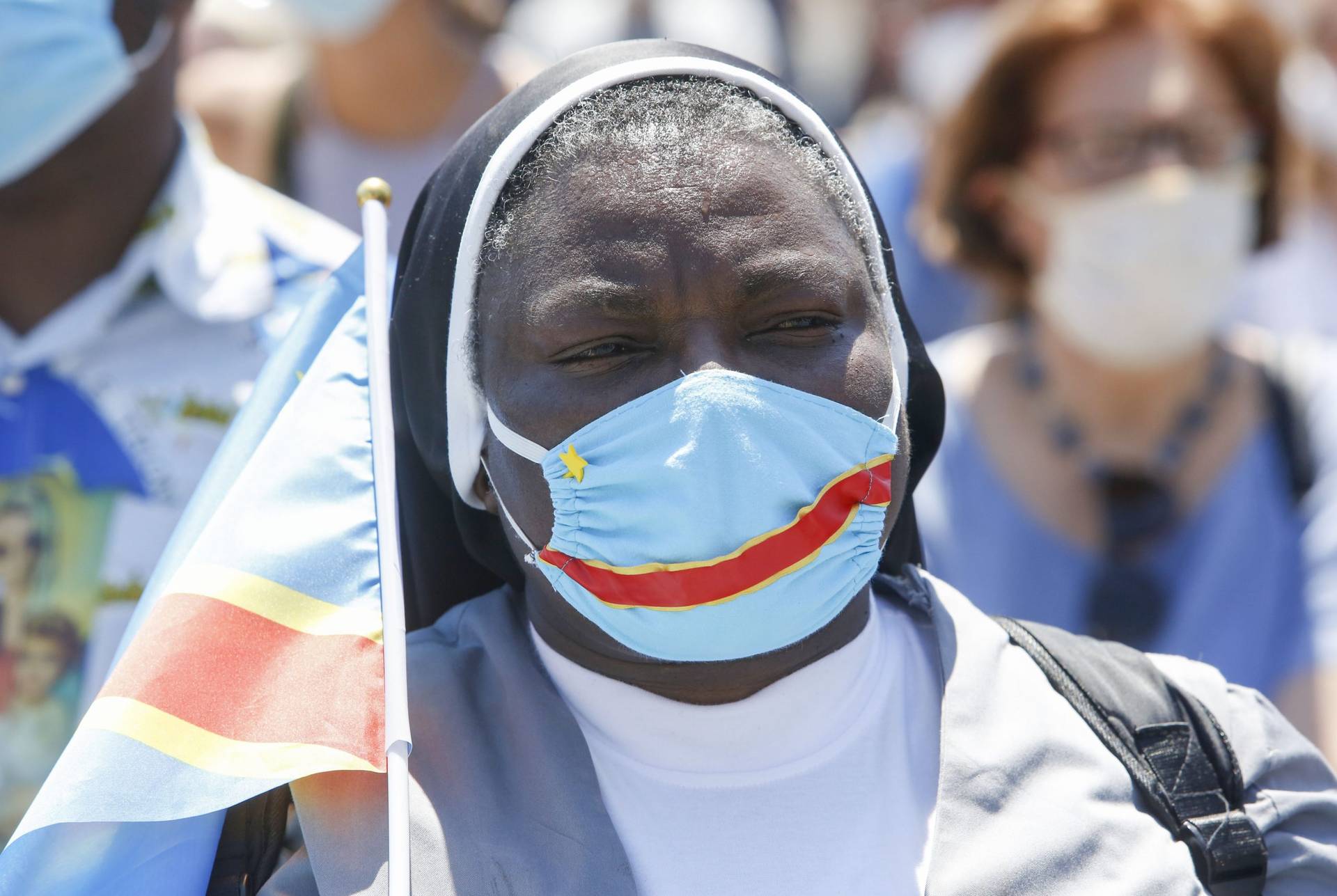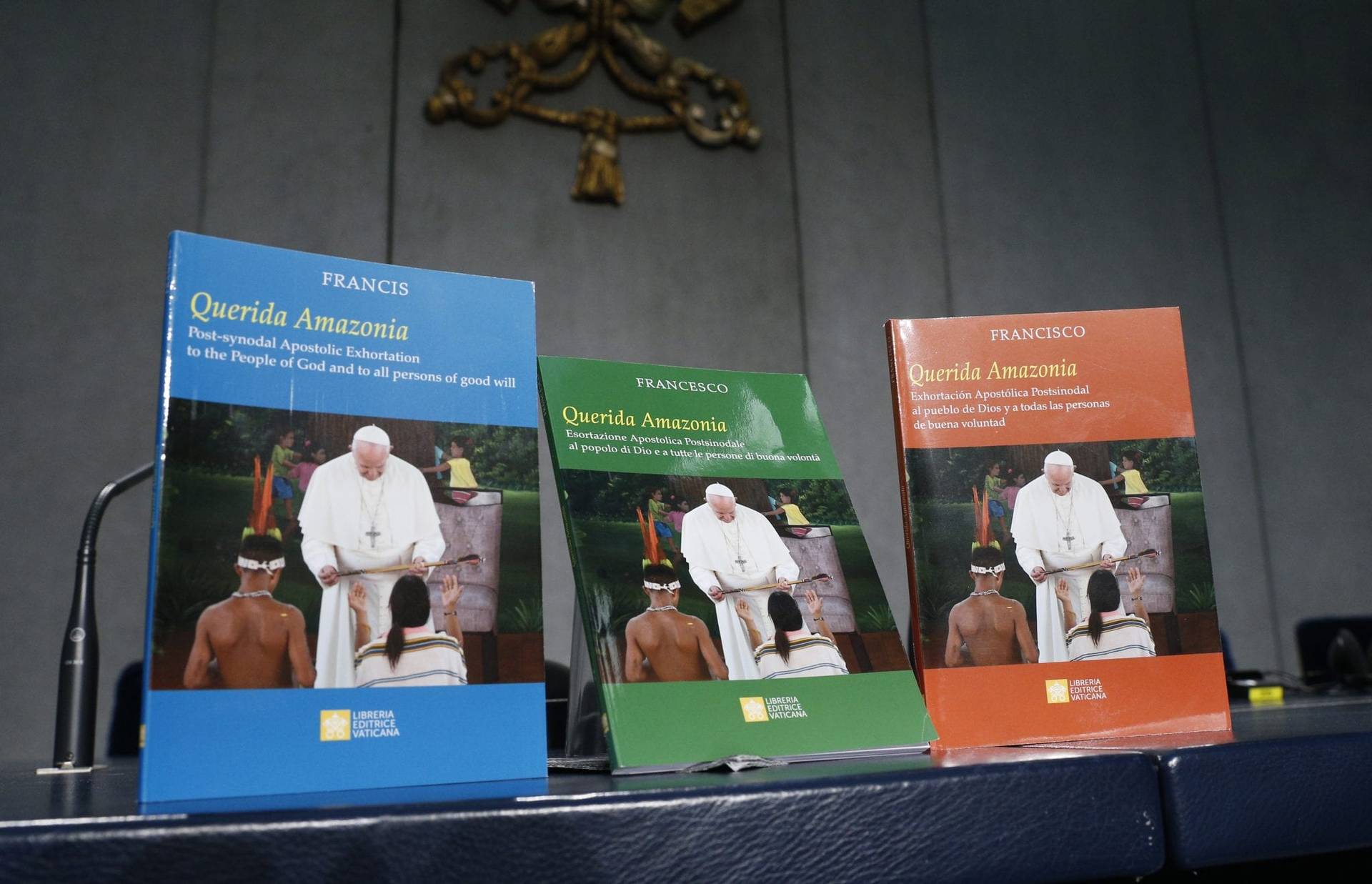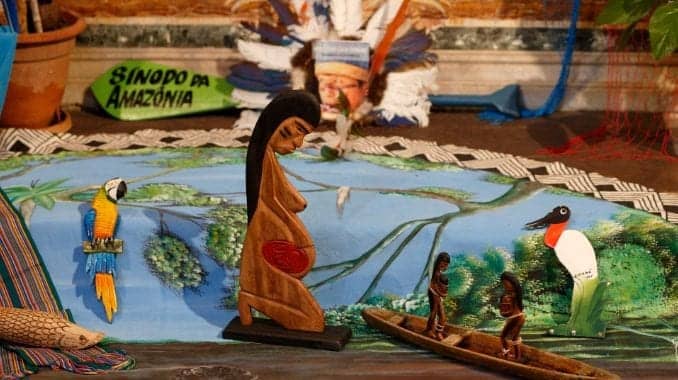ROME – A leader of the Rosebud Sioux Tribe said the Church had been instrumentalized to justify “tragic genocide, ecocide and ethnocide the human history can remember” against the indigenous peoples of the Americas.
Rodney M. Bordeaux, the chairman of the tribe, was speaking on Thursday at a side event to the Synod of Bishops on the Amazon currently taking place at the Vatican.
He accused governments of using a series of papal bulls from the 15th and 16th centuries and Church teaching to justify the “doctrine of discovery and manifest destiny,” carried out in the so-called “new world” until the end of the 19th century.
Though they will not have the opportunity to meet with Pope Francis, Bordeaux said that members of his organization are talking about sending him a letter, addressed also to Cardinal Peter Turkson, head of the Vatican’s office for integral human development, for the Holy See to officially disavow the papal bulls on the doctrine of discovery.
Though he didn’t name any of the bulls, there are several. Perhaps the best-known is Inter Caetera, issued by Pope Alexander VI in 1493, that established the spiritual, political and legal justification for colonization and the seizure of lands not inhabited by Christians.
Bordeaux spoke at a presentation of “North American voices at the Synod” taking place on Thursday, during which a delegation will speak to the significance of the synod for indigenous peoples in Canada and the U.S. and building North–South solidarity.
During the press conference, held within walking distance of the Vatican’s synod hall, Bordeaux acknowledged that the Catholic Church has dropped colonizing attitudes and said that it’s possible to work together. However, he said formally repudiating the papal bulls from previous centuries would be a strong symbol that would do much to help “heal the wounds.”
“I don’t know when it started … probably in the late 1960s and ’70s, [but] the Church started embracing our ways,” he said. “The Catholic Church is the most dominant religion in the Rosebud Sioux Tribe. Some of our traditional leaders are Catholic, and the Church is recognizing that.”
“But in terms of keeping our people within the Church, it would be really beneficial and it would show a lot of good faith in our people,” he continued. “The pope banning those papal bulls would show big strides in the healing of our people.”
The indigenous peoples across the Americas “gave up so much” due to colonization, that Francis repudiating the bulls would show that the Church too is “giving up something.”
“It was wrong … the way the U.S. government used them as part of their federal system … We lost so much of our land, culture and people,” he said, noting that even today they’re losing their land, which they see as sacred, with pipelines being built through their land without the consultation of the Rosebud Sioux Tribe.
This would not be the first time the Rosebud Sioux Tribe has made this request to the Vatican. In fact, their lawyer told Crux that in 2017 they sent an official request to the Vatican’s Secretariat of State.
Yet, more than two years later, he said they still haven’t received a response from the Holy See. Hence, the perceived need to reiterate the request, this time directly to the man in charge.
Canadian Archbishop Don Bolen from the Archdiocese of Regina, Saskatchewan, told Crux after the press conference that the Canadian bishops put out a document on the doctrine of discovery, tracing the history of the papal bulls but also looking at the way in which subsequent statements by popes moved in a different direction, respecting indigenous peoples.
“But indigenous peoples have not heard, in a way that is helpful to them, our critique of and distancing ourselves from a model of colonization which did not respect indigenous people,” he said. “We need to find new ways to say that we do respect indigenous peoples, that we do not look positively or happily on the history of oppression by a colonizing power.”
Bolen also said statistics show that indigenous peoples are on the losing end when it comes to unemployment, access to education, high school graduation rates and access to health care.
“If the Church has the desire to reach out to those in need, it needs to place us in solidarity with indigenous peoples,” he said. “Plus, we were implicated in the government sponsored school system, so we were implicated in the loss of culture, language and tradition. We have to be implicated in their recovery and retrieval.”
Speaking about his presence in Rome, Bordeaux said that they are here to “share with our brothers and sisters [in the Amazon region] that what is happening to them now, happened to us in Dakota 120 years ago, when without consultation, they took our land away, based on economic gain.”
“We’re asking the Catholic Church to not stand in silence anymore, but to stand with us in partnership so that we can save Mother Earth,” he said.
Also at the press conference was Sister Priscilla Solomon, an Ojibway Sister of St. Joseph of Sault Ste. Marie, and member of the Guadalupe Circle of Canada. She said that the Catholic Church has a “very strong role” in supporting indigenous peoples who are living with their own beliefs.
“They are very down to earth, very connected with caring for the earth,” she said. “The Church’s role is not to try to convert them to Christianity, but where there’s an openness, talk about Christ. The Church has to be ready to offer that, but not impose it.”
An earlier version of this story said Bordeaux “charged the Church with genocide.” He instead said the Church was being instrumentalized to justify genocide. Crux apologizes for the error.
Follow Inés San Martín on Twitter: @inesanma
Crux is dedicated to smart, wired and independent reporting on the Vatican and worldwide Catholic Church. That kind of reporting doesn’t come cheap, and we need your support. You can help Crux by giving a small amount monthly, or with a onetime gift. Please remember, Crux is a for-profit organization, so contributions are not tax-deductible.














